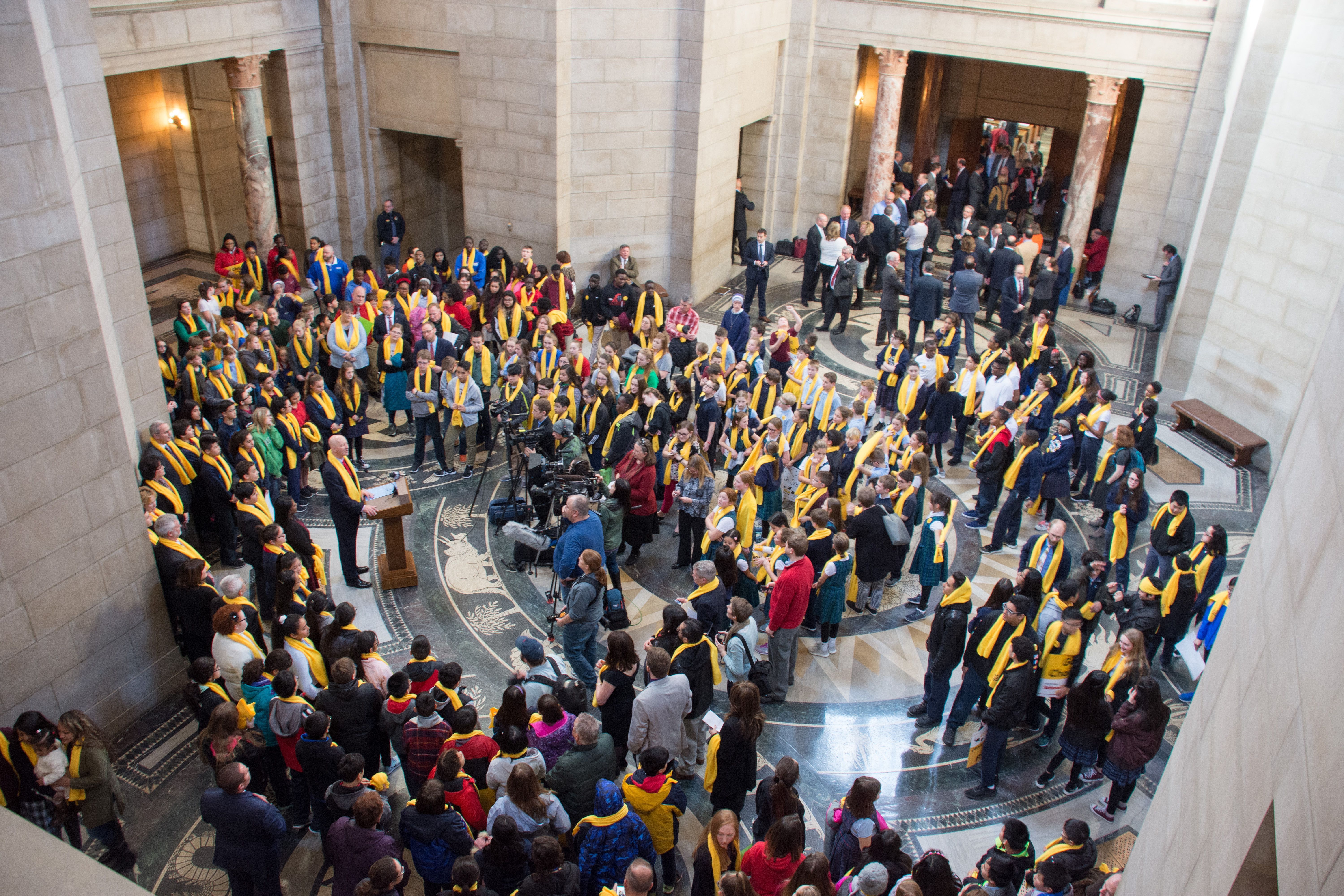Once upon a time, before I had many gray hairs, I was a seminarian for the Archdiocese of Omaha. It was a beautiful and rich part of my life. The Lord blessed me with incredible formation and excellent seminaries.
My brother seminarians were outstanding gentlemen. The seminary formation staff members were committed to Jesus and His Church. The academics were intellectually life-giving. Most of all, I cannot thank the Lord enough for the countless hours of prayer I experienced, which drew me closer into His heart.
Those many hours of prayer included regular recitation of the Liturgy of the Hours, which is a universal prayer of the Church that provides a daily rhythm for pausing throughout the day to pray and contemplate Sacred Scripture.
A passage that we’d pray during Saturday evening prayer, that quickly became a favorite of mine, was Philippians 2:6-11: “Though he was in the form of God, Jesus did not deem equality with God something to be grasped. Rather, He emptied Himself and took the form of a slave, being born in the likeness of men. He was known to be of human estate, and it was thus that He humbled Himself, obediently accepting even death, death on a cross. Because of this, God highly exalted Him and bestowed on Him the name above every other name. So that at Jesus’ name every knee must bend, in the heavens, on the earth, and under the earth, and every tongue proclaim to the glory of God the Father: JESUS CHRIST IS LORD!”
“But, Tom,” you might ask, “What does this have to do with any of your regular ramblings about public policy and the work of the Nebraska Catholic Conference?”
I thought you’d never ask.
This weekend, we’ll celebrate the end of our liturgical year with the Solemnity of Our Lord Jesus Christ, King of the Universe. This feast was established in 1925 by Pope Pius XI through his encyclical, Quas Primas, as a response to the growing secularism and atheism of the time. (As far as encyclicals go, it’s rather short and I recommend you read it in its entirety.)
As I’ve said in the past, this solemnity is easy to neglect because it falls around the celebration of Thanksgiving and the quick fast-forward into Christmas. But it’s a feast worth pausing for, as it has something profound to say to us.
The feast of Christ the King reminds us that Jesus came not simply to help us engage in right worship (though this was central to His mission). He also came to sanctify every aspect of our life, including our social and political life.
Too often in our culture, there is a tendency to think that politics and those involved in it are too corrupt or disordered, beyond redemption. But Jesus reminds us that this mindset and disposition is a lie from the Evil One.
Jesus, King of the Universe, desires and hopes for our political and social order to be properly ordered toward Him.
Jesus, King of the Universe, desires and hopes those who govern our political and social order place their hope and trust in God. As Pope Pius XI states in Quas Primas, political leaders are “bound to give public honor and obedience to Christ” and “call to their minds the thoughts of the last judgment.”
Likewise, as we heard in the daily readings at Mass last week from the book of Wisdom: “Hear, O kings, and understand; learn, you magistrates of the earth’s expanse! Hearken, you who are in power over the multitude and lord it over throngs of peoples! Because authority was given you by the Lord and sovereignty by the Most High, who shall probe your works and scrutinize your counsels.”
Christ the King gives us the opportunity to consider the graces and obligations bestowed on our political leaders, who are called to lead us by the authority of God toward peace, justice, and mercy. That obligation and grace falls to us, as well, as citizens. We are called to build a society of peace, justice, and mercy with our neighbors—both those we love and those we consider our enemies.
May the Solemnity of Christ the King help us humbly pause and pray for our government leaders, that they would work toward that reality Jesus leaves us in His great prayer: “thy Kingdom come, on earth as it is in Heaven.”

